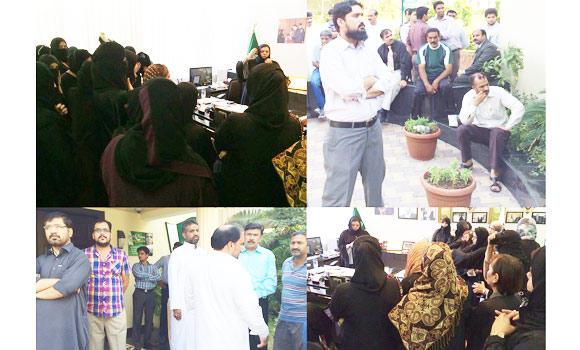
Jeddah/Riyadh, Nov 21: The principal of the Pakistan International School Jeddah English Section (PISJ-ES), who was sacked by the Pakistan ambassador earlier this week, has rejected allegations against her and refused to vacate her position.
Sehar Kamran has instead accused Mohammad Naeem Khan, Pakistan’s ambassador, of playing politics because she is a member of the Pakistan People’s Party (PPP) that was defeated in the recent elections by the Pakistan Muslim League-Nawaz (PML-N).
Khan fired Kamran Tuesday following several allegations against her including corruption, mismanagement of funds, gross indiscipline, favoritism and using her political connections to get the job in 2008. Khan appointed Imran Raza Khan as acting principal with immediate effect.
Kamran allegedly refused to allow the new acting principal to enter the school premises on Wednesday morning, ordered that the school close early and that it would remain close on Thursday, a move that angered some parents.
“We received a message to pick up the children around 10 a.m. The school belongs to the community. It is not her personal property to do what she likes with it,” said Imran Abasi, a parent. He said it took him almost an hour and a half to find his children.
Another parent, Khalid Cheema, said: “Parents do not want a political personality as principal.”
However, Arshad Javaid, also a parent, claimed that “90 percent of the parents are with Kamran and want her to run the school.”
The school’s link officer, Sohail Ali Khan, went to the school to pacify parents and said it would be open on Thursday. He said the decision to terminate Kamran had been taken by the governments of Saudi Arabia and Pakistan and was in accordance with Saudi regulations.
Aftab Khokhar, the Pakistan consul general, said Kamran’s decision to shut the school was illegal. He said the consulate would ensure that the school remains open and the Pakistan ambassador’s orders implemented.
Kamran rejected the allegations against her and lashed out at the embassy officials.
“I’ve served Pakistan for more than 21 years with honesty, love and loyalty. I’ve always worked for the development of Pakistan. I’ve served this school with my expertise and love for more than six years,” she said.
Kamran accused the ambassador of firing her because of her political affiliations. She said the officials had acted in an “unscrupulous” manner following the establishment of the government under the PML-N, and because she is a member of the PPP.
Kamran is the first woman to enter the upper house of Pakistan’s Parliament and won a senate election. The allegations were from people “playing high level politics ... and trying to destroy the image of Pakistan,” she said.
Some Pakistani parents and students came out in support of Kamran and held a demonstration at the Saudi Ministry of Education. The parents said they met with Khalid Al-Harthy, director of Foreign Education for the Western Region, and claimed he sent a letter to the Riyadh Ministry of Foreign Affairs and Education Ministry “for a decision.”





Comments
Why a political worker was appointed as principal of Pakistani School?
Was it a favour to her by Zardari govt?
Add new comment